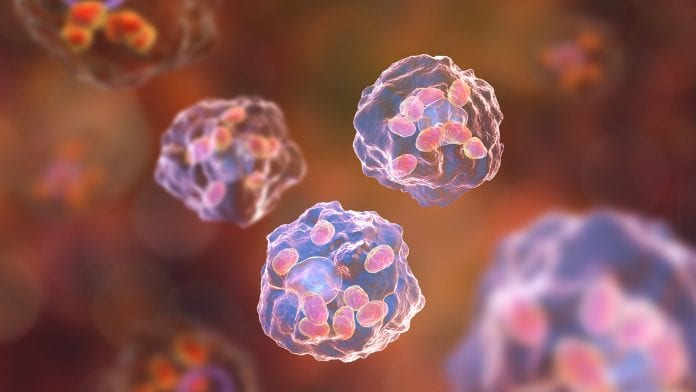
A new discovery has shown that the immune system can be trained to fight infections.
A new report from UCLA scientists shows the discovery of the fundamental rule underlying the immune system’s process of fighting off infections in a particular class of cells. It shows the immune system can also be “trained” to respond more aggressively to infections.
The team identified a key molecular mechanism within macrophages, which are infection-fighting cells of the innate immune system, that determines whether, and how well, the cells can be trained.
The findings, published in the journal Science, could help pave the way for future targeted strategies to enhance the function of the immune system.
Immune training
Innate immune cells can be trained by past experiences to become better at fighting infections, highlights lead author of the study, Quen Cheng, an Assistant Clinical Professor of Infectious Diseases at UCLA’s David Geffen School of Medicine. Cheng noted that the researchers had previously observed that some experiences seemed to be better than others for immune training.
Whether the training occurs depends on how the DNA of the cell is wrapped. In human cells, for instance, more than six feet of DNA must fit into the cell’s nucleus, which is so small that it is not visible to the naked eye. To achieve this, the DNA is tightly wrapped into chromosomes.
Senior author Alexander Hoffmann, UCLA’s Thomas M. Asher, Professor of Microbiology and Director of the Institute for Quantitative and Computational Biosciences, points out that only selected regions of the DNA are exposed and accessible, and only the genes in those accessible regions can respond and fight infection.
By introducing a stimulus to a macrophage, such as a substance derived from a microbe or pathogen, as in the case of a vaccine, previously compacted DNA regions can be unwrapped which exposes new genes that will enable the cell to respond more aggressively.
The team’s research reveals that the precise dynamics of a key immune signalling molecule in macrophages, called NFκB, determine whether this unwrapping and exposing of genes occurs, and that the dynamic activity of NFκB itself is determined by the precise type of extracellular stimulus introduced to the macrophage.
Cheng said: “Importantly, our study shows that innate immune cells can be trained to become more aggressive only by some stimuli and not others. This specificity is critical to human health because proper training is important for effectively fighting infection, but improper training may result in too much inflammation and autoimmunity, which can cause significant damage.”
NFκB
Using advanced microscopy, the researchers followed the activity of NFκB – which helps immune cells to identify incoming threats – in macrophages derived from the bone marrow of healthy mice, tracking how the molecule’s dynamics changed in response to several different stimuli.
The findings demonstrated that NFκB was successful at training macrophages only when the stimulus-induced non-oscillating NFκB activity.
Cheng said: “For a long time, we’ve known intuitively that whether NFκB oscillates or not of must be important but had simply not been able to figure out how. These results are a real breakthrough for understanding the language of immune cells and knowing the language will help us ‘hack’ the system to improve immune function.”
The researchers were also able to simulate this training process with a mathematical model, which may allow for future precision-targeted engineering of trained immunity, Hoffmann said.
The team expect this research to inspire a wide range of additional studies, including investigations into human diseases caused by immune cells that are improperly trained, strategies to optimise immune training to fight infection, and ways to complement existing vaccine approaches.









